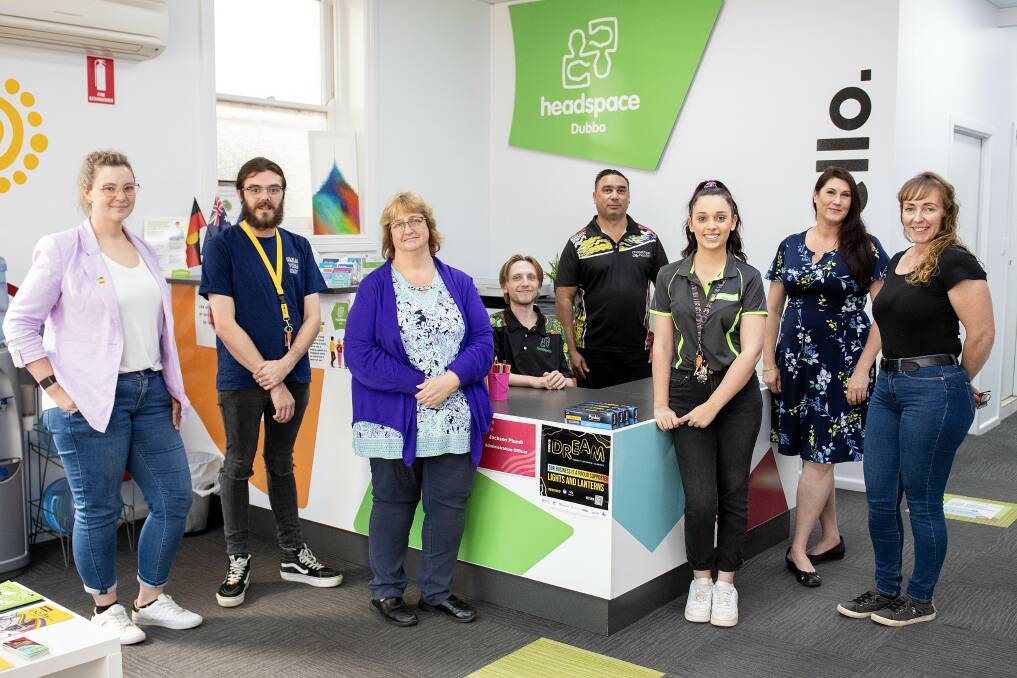New data shows a concerning number of children and young people aged five to 25 are seeking help for mental health and suicide-related concerns.
Subscribe now for unlimited access.
or signup to continue reading
Recent data from Kids Helpline shows mental health, emotional well-being and suicide-related concerns accounted for 61 per cent of all counselling contacts to the service in the past 12 months, up from 55 per cent the previous year.
Clinical team lead at headspace Dubbo, Sharon Jenks, said statistics around mental health were "scary", and she was seeing a similar rise in young people seeking help from her service in Dubbo.
However, she said this could suggest help-seeking behaviours are improving locally.
According to beyondblue, about 75 per cent of all mental health disorders emerge before the age of 25. New Australian Bureau of Statistics data shows 38.8 per cent of people aged 16-24 years had a 12-month mental disorder during 2020-21.
"There's a huge percentage of young people that are experiencing higher levels of distress and they are having thoughts of suicide, and they are more vocal I think about that," Ms Jenks told the Daily Liberal.

headspace Dubbo is one of 100 offices Australia-wide and deals in early intervention, youth mental health, and well-being and support for 12- to 25-year-olds.
Most of the young people seeking support locally are concerned about mental health, general well-being, and education and study supports, as well as drugs and alcohol, Ms Jenks said.
Depression and stress - particularly related to exams, and in particular, HSC exams - as well as bullying, are topics that come up a lot.
"This is the perfect time of year, HSC year, and even the younger ones just doing the end-of-year exams leading up to year 12, especially if they're high achievers, really put a lot of pressure on themselves," Ms Jenks said.
"There's also bullying. We do deal with a lot of that throughout the year. It's something else that comes up but even just young people scared to go back to school because of the bullying, because of the way they've been made to feel when they've gone to school."
Ms Jenks said young people are getting better at seeking help with mental health and well-being.
"I think it's more acceptable now than it was several years ago to actually pick up the phone and go and say, hey, I need some help, I'm not travelling too well at the moment," she said.
"It's more acceptable for people to go and get some help and not just be told to get over it."
In Ms Jenks' experience, parents are often the ones to contact headspace for their child, or urge their child to contact the service.
"Most parents will be the ones to encourage the young person to either come to headspace or make the phone call themselves in the first instance," she said.
IN OTHER NEWS
"Often they take their young person to the doctor and the doctor makes the referral to headspace. Either way, the family are hugely involved in the well-being of the young person and wanting to get them help when they need it."
According to the Kids Helpline data, the top reasons young people called the service in NSW during the past year were emotional wellbeing, mental health concerns, family relationship issues, suicide-related concerns, and family/peer relationships.
The main concerns requiring duty of care actions across NSW were related to child abuse and suicide attempts.
- Support is available for those who may be distressed. Phone Lifeline 13 11 14; Mensline 1300 789 978; Kids Helpline 1800 551 800; beyondblue 1300 224 636; 1800-RESPECT 1800 737 732.
Reading this on mobile web? Download our news app here. It's faster, easier to read and we'll send you alerts for breaking news as it happens.


